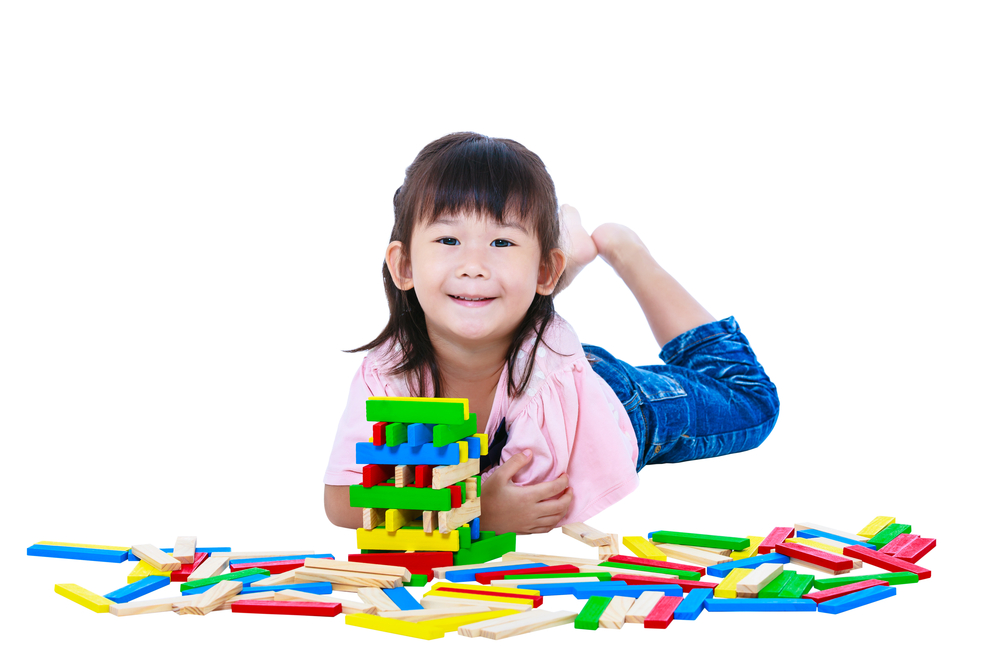
Things will start to get more exciting once your child turns five. By now, he would have been attending preschool or childcare for a while now – or have just embarked on his journey in kindergarten.
Still, many parents may wonder if their children are growing and developing at a normal pace – that’s when a checklist of developmental milestones that common for preschoolers between five and six can help you to keep things in check.
During these two years, here are some milestones to look out for:
Language and learning
- Follow three-step instructions with ease
- Speak in simple but complete sentences with five to seven words
- Start to realise that some words have more than one meaning. This skill helps them to understand jokes and puns, and encourages them to start verbally expressing a sense of humour
- Begin to read age-appropriate books (The Keywords with Peter and Jane series by Ladybird Books is a good start)
- Learn the basics of phonics by sounding out unfamiliar words
- Able to focus on a task for up to 15 minutes
- Understand the concept of numbers
- Differentiate day and night, and left and right
- Able to tell time
- Able to repeat three numbers backward
Physical Development
When it comes to physical development, do bear in mind that every child is unique. So do resist the urge to compare your child’s growth and development with “the standard ones” which you have seen or heard of. There is also no need to force your child to eat more to reach the “standard” height and weight.
Here are some milestones you can expect to see:
- Around 6 years old, baby teeth will start to fall out and be replaced by permanent adult teeth
- Your child will develop a sense of body image and becomes conscious of being taller/shorter or fatter/thinner than the rest
- Children between 5 and 6 generally grow about 2.5 inches a year and 2 to 3kg a year
- Complaints about tummy aches and leg pains will be more frequent – this could be attributed to growing pains or the fact that they are now more aware of their bodies.
- Children at this age are still learning about sound, distance and speed – so be extra careful with them when crossing roads as they may not know how dangerous a passing car can be.
Social and emotional
Between 5 and 6 years old, children love to be independent but they still need a lot of love and attention from their parents. They may try to show what a big girl or boy they are now and try to do things that might be dangerous.
Peer acceptance becomes more important now, as they learn to cooperate and share and develop favourites in terms of who they want to play with.
Parents are encouraged to let their children make their own choices on simple things like toys and sports. You can help them by offering a range of examples for them to consider
With growing language skills, they will get better at describing an incident to you, and what they think and feel about it. However, the downside to this is that lying, cheating and stealing can be expected around this age – which is why they should be addressed quickly before it becomes a habit that lead to bigger issues.
In general, five- to six-year-olds are figuring out where they fit and what’s considered acceptable.
Your 5- to 6-year-old’s development: How parents can help
Every day is a learning adventure for both you and your child as you both learning a little more about each other. As your child grows and develops, you’ll soon figure out what he needs and how you can meet those needs.
Here are some things you can do:
- Play different sports and engage in a wide range of recreational activities together or with other kids – these teach your child about social skills such as taking turns, cooperating, playing fairly and being a good sport.
- Assign simple household chores to your child such as setting the table or helping to keep the clothes after folding. These encourage them to think and teaches them about responsibility – all of which are important for now and the school years that follow.
- Set aside time to play with your child, even if it’s just for 10 minutes each day. This gives you the chance to see the world from your child’s eyes and find out what he is thinking and feeling. It also lets your child know that he is important to you and that you care about him.
- Encourage your child to talk about his feelings. Find out why he feels a certain way about something and help to put the right words to these feelings. This process will help him form friendships and show empathy to others.
- Put a cap on screen time so that your child does not get hooked to the TV and gadgets. Make sure there is balance in sleep, play and family time.
When to seek help
If you notice that your child shows signs of growth or developmental delay between five and six years old, do seek advice from your family doctor immediately:
- You have difficulty understanding when he talks or that he isn’t speaking in full sentences.
- He has difficulty following simple instructions such as “Put your plates at the sink after finishing up your drink”.
- He shows inappropriate or challenging behaviour such as throwing tantrums whenever he doesn’t get what he wants
- Shows no interest in letters or learning to write his own name
- Seems to be withdrawn, worried or depressed whenever he is separated from you
- Does not interact well with others and shows aggression or simply has no interest to mix with other children or adults
- Still wets or soils his pants during the day (Note: Please be assured that night-time wetting is normal up to the age of 6 to 7 years old, especially for boys)
- Has difficulty falling asleep at night, or staying asleep.























